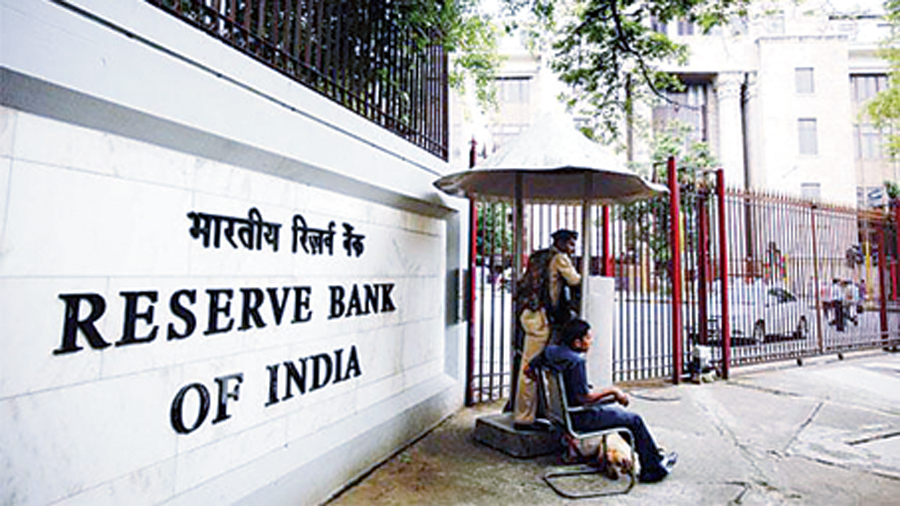The Reserve Bank of India has raised the ceiling for long-run promoters’ holding in banks at 26 per cent of the paid-up equity share capital from 15 per cent earlier but ducked a decision on a controversial recommendation made by an internal working group to permit corporate houses to enter the arena of banking.
The banking regulator has decided that there will be no fixed cap on promoter’s stake in a bank during an initial period of five years. But this will have to be whittled to 26 per cent after the bank has completed 15 years of operation.
While accepting 21 of the recommendations put forth by an internal working group headed by P.K. Mohanty in its report submitted in October last year, the RBI said there will be no intermediate sub-targets for promoters’ holding between 5 and 15 years.
Promoters who had trimmed their stake stake to comply with the existing 15 per cent ceiling will be allowed to raise their holding to the new 26 per cent ceiling.
The internal working group (IWG) had said that large corporates and business houses should be allowed to establish banks after making requisite amendments to the Banking Regulation Act, 1949 – a suggestion that has been supported by veteran banker K.V. Kamath but bitterly opposed by former RBI governor Raghuram Rajan and ex-deputy governor Viral Acharya.
The issue has been vigorously debated in the past and eluded consensus amid concerns raised about the risks of connected lending and exposures between the banks and other financial and non-financial group entities.
The RBI today said the IWG had made 33 recommendations but only 21 have been accepted – some of them with slight modifications. The rest are under “examination”.
The Narendra Modi government is expected to move amendments to the Banking Regulation Act in the upcoming winter session. Experts anticipate that it will lower government holding in public sector banks to 26 per cent. But it is not known if it is considering any proposal to allow business houses to set up banks.
The 26 per cent ceiling will be uniform across all types of promoters, the RBI said. “The promoter, if he/she so desires, can choose to bring down holding to even below 26 per cent, any time after the lock-in period of five years,” it added.
At present, promoters are required to have a minimum stake of 40 per cent in a bank for the first five years of its operation. There will be no change in this rule. However, when the banking licenses are issued, the promoters will have to present a clear roadmap for dilution of their stake. They will also have to achieve and report agreed milestones, which will be monitored by the regulator.
The shareholding of non-promoters will be capped at 10 per cent of the paid-up equity capital in the case of natural persons and non-financial institutions or entities. A higher ceiling of 15 per cent will be allowed for “all categories of financial institutions/entities, supranational institutions, public sector undertaking or Government.”
Capital rules
The banking regulator accepted the recommendation that the minimum initial capital requirement should be doubled to Rs 1000 crore in the case of universal banks. In the case of small finance banks, the capital requirement has been fixed at Rs 300 crore – up from Rs 200 crore at present.
It also indicated its preference for a non-operative financial holding company (NOHFC) structure for all new universal banks. However, this structure will be mandatory only in cases where the individual promoters, promoting entities or even converting entities have other group entities. The RBI added that banks currently under NOFHC structure will be allowed to exit from this structure if they do not have other group entities within their fold.
The IWG report’s suggestion for small finance banks was accepted with a modification. The group had said that these banks should be listed on the stock exchange within six years from the date of reaching a net worth equivalent to prevalent entry capital requirement prescribed for universal banks or ten years from the date of commencement of operations, whichever is earlier. The RBI however, said that in case of SFBs to be set up in future, they would have to list within eight years from the date of starting operations.
The full-service universal banks, on the other hand, will have to list within six years of commencement of operations.
The promoters will not be allowed to pledge their shares during the lock-in period that will be in place for the first five years of operations.
When a pledge is invoked for over 5 per cent of the paid-up capital, the RBI will restrict the voting rights of the pledgee till he or she applies for the regularization of the share acquisition. It also said that it would introduce a reporting mechanism for promoters of private sector banks seeking to pledge their shares.
The regulator said it might put in place a tighter, bank-like regulatory framework for large non-banking finance companies.
It also said that whenever a new licensing guideline is issued, the benefit of any relaxation in the rules would be extended to existing banks immediately. If the new rules are tougher, the legacy banks will have to comply but a transition path will be finalized with the banks to ensure regulatory compliance is achieved in a non-disruptive manner.










